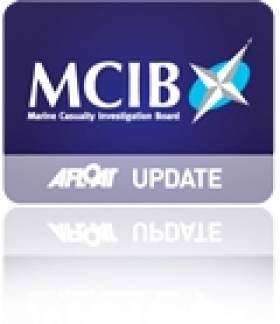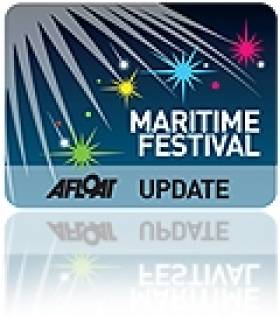Displaying items by tag: Grounding
Nighttime Navigation Issues Led to Grounding of 'Pirate Queen' - MCIB
#MCIB - "Serious weaknesses" in navigational procedures and practices led to the grounding of a passenger boat at Roonagh Pier in Co Mayo last winter, according to the official report into the incident.
The inter-island passenger ferry Pirate Queen - operated by Clare Island Ferry and Clew Bay Cruises Ltd - grounded on rocks at the entrance to Roonagh Pier on the evening of 20 December 2011 as it made a nighttime approach to the pier.
Two crew were joined by three passengers on board at the time, one of whom served as auxiliary crew while another was injured when the vessel was jolted in heavy swell. The vessel itself, though not holed, sustained severe structural damage.
It emerged that the navigational aid lights on the pier - maintained my Mayo County Council - were not fully functioning at the time of the incident and did not illuminate the waters in the vicinity of the pier, making any approach in darkness a dangerous one, particularly at a location where swells were common at the best of times.
However, the Pirate Queen continued on its heading to Roonagh Pier despite its master being made aware of the lighting issue via SMS shortly after leaving Inishturk.
On approach is was noted that the search light was not manned, and when the lookout reported that the vessel was too far to the east, a large swell forced the boat onto rocks on the east side of the pier.
Lifejackets were immediately put on the passengers, while a fellow ferry master returning home on his RIB was hailed to quickly retrieve the passengers from the boat.
As the ferry was rolling and grinding on the rocks in the heavy swell, one of the passengers was thrown against a bulkhead or the hull and suffered a back injury, though luckily avoided head injury due to the lifejacket. All three passengers were transferred ashore safely via RIB.
In its findings, the Marine Casualty Investigation Board (MCIB) initially focused on the pier lighting, both high-level and navigation lights, noting their vulnerability to storm damage and the lack of effective screening.
But upon further analysis, the report highlighted a number of deficiencies in the running of the ferry service itself, such as the lack of crew rosters to ensure a full complement for any sailing, and the absence of an alternative plan in the event of difficulties landing at Roonagh Pier.
In addition, it noted "an over-reliance of visual aids to navigation and a neglect to practice and use the electronic aids on board.
"When one is very familiar with the waters and on regular passages it is very easy to become complacent," the report stated.
It also noted the "hazardous and unacceptable" decision following the incident to move the boat from Roonagh Pier to Clare Island without informing the Irish Coast Guard of the situation.
The MCIB recommends that the ferry operators devise specific approach instructions, ensure that all employees take part "in the full range of emergency procedures" and that crew rosters be drawn up and displayed. The complete report is available to download below.
Boats Head for 'Foyle Days' 2011
Over the years she has changed hands between Dutch and UK interests for recreational use. Several years ago she starred in the RTE TV reality show 'Cabin Fever' where she replaced the show's first ship Camaret of Cornwall (branded as 'Cabin Fever') after it ran aground off Tory Island.
During the two-day festival (11am-5pm) the boating community at the event will include the Coleraine Yacht Club, Foyle Paddlers, Foyle Punts, Lough Foyle Yacht Club, Lough Swilly Yacht Club, Moville Boat Club, RNLI and the Foyle (SAR) Search and Rescue.
Visitors to Foyle Days can call to the Clipper stand and learn more about the city's entry of the Derry~Londonderry boat in the 2011-2012 Clipper Round the World Race. Learn more about the countries the crew will visit and also how to get involved in the event. For more information about the race, at 40,000 miles is the world's longest race go to www.clipperroundtheworld.com/
Running alongside the festival a continental market with 40 stalls will be open to all at the recently revamped Guildhall Square. For further details about Foyle Days click here.
- Clipper Race
- Maritime Festival
- RNLI
- Lough Foyle Yacht Club
- Lough Swilly Yacht Club
- Moville Boat Club
- Derry
- Londonderry
- Tory Island
- JOHANNA LUCRETIA
- Foyle Days
- RTE TV
- Cabin Fever
- Camaret of Cornwall
- Grounding
- Reality TV show
- Clipper Around the World Race
- Guildhall Square
- Continental Market
- Coleraine Yacht Club
- Foyle Search and Rescue
- Foyle Paddlers
- Foyle Punts
- Offshore Sailing
- Clipper Round The World Race
- JOHANNA LUCRETIA






























































